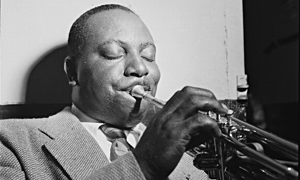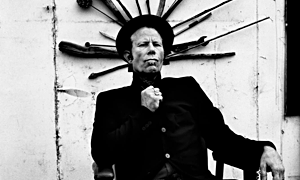Home » Jazz Articles » Book Review » Freedom of Expression: Interviews with Women in Jazz by ...
Freedom of Expression: Interviews with Women in Jazz by Chris Becker
 Freedom of Expression: Interviews with Women in Jazz
Freedom of Expression: Interviews with Women in Jazz Chris Becker
332 Pages
ISBN: # 978-0692543603
Beckeresque
2015
Houstonian writer and composer Chris Becker had a labor of love in mind when he set out to assemble his Freedom of Expression: Interviews with Women in Jazz. What may have begun as a collection of interviews, morphed into a tautly-rendered history of jazz against a backdrop of America's decaying history of racism and sexism. What is special about this book is that it comes along at its appropriate time. It is not too early to be fully appreciated as timely, as opposed to "ahead of its time" and it is not too late to be fully taken for granted. Its premise states the obvious: women's contribution to jazz (and all art) has always existed and has not only become more evident as we have lost the trappings of religious and secular patriarchy but have increased quantitatively because of that (completely necessary) loss. And that is all of the social commentary I have for this review.
Becker interviews a wide cross-section of female jazz musicians, covering an impressive dissemination of demographics. Surrounding this almost clinically-sound distribution of talent, Becker has raised succinctly-stated perimeter in which to place these musicians, more brightly illuminating their individual, group, cultural contributions. He begins with a brief history of jazz before veering into the contribution of women, and with his Texas-sized literary lasso, wrangles issues like rock and roll, the women's liberation movement, the growth of jazz education, and global influences. He addresses the newer business models of artist-run labels and crowdfunding projects, as well as evolutions in contracts, all spearheaded by women, that have (hopefully) changes the face of music funding and distribution forever.
A popular perception of women in jazz have them orbiting the centers of vocals and piano. In his survey, Becker included interviews with 10 vocalists and 6 pianists (I am including those who do both in one or the other. While the spirits of Billie Holiday and Mary Lou Williams loom large in this book, many more instruments are represented. In particular, women reeds-players have multiplied in the past 30 years revealing such talent as the well-established Jane Ira Bloom that Oklahoma-cum-New Yorker Sharel Cassity. Throw in the pan-inclusive Mindi Abair whose viral career has benevolently metastasized to all genre, that the conversations with Becker gets lively.
Rather than mention the Dee Dee Bridgewaters and Cheryl Bentynes of this group, I would opt for continuing to highlight some of the other musicians included here. Of note, Becker did not have to stray far from home to find vocalist Jacqui Sutton or saxophonist Alishia Pattillo as they share with him one of the most vibrant jazz communities in the south in Houston. Sutton, a Floridian, put together her "garage" jazz band at the age of 50, producing very provocative music while the international Aussie-by-way-of-the-far-East Pattillo enters things with an impressive academic record and catholic musical palette. Their approaches to music are muscular, vibrant, and unique. Sutton and Pattillo well represent the rich background provided by women musicians in jazz.
Freedom of Expression: Interviews with Women in Jazz was a necessary book to be written because, many times, the obvious absolutely escapes our over-sized monkey brains. In the field of creativity it is, paradoxically, our similarities and differences that inform the art we make. Removing uninformed bias and prejudice, and replacing that with a generous appreciation of our different and vitals offering is what will produce justice.
Tags
PREVIOUS / NEXT
Support All About Jazz
 All About Jazz has been a pillar of jazz since 1995, championing it as an art form and, more importantly, supporting the musicians who make it. Our enduring commitment has made "AAJ" one of the most culturally important websites of its kind, read by hundreds of thousands of fans, musicians and industry figures every month.
All About Jazz has been a pillar of jazz since 1995, championing it as an art form and, more importantly, supporting the musicians who make it. Our enduring commitment has made "AAJ" one of the most culturally important websites of its kind, read by hundreds of thousands of fans, musicians and industry figures every month.

























